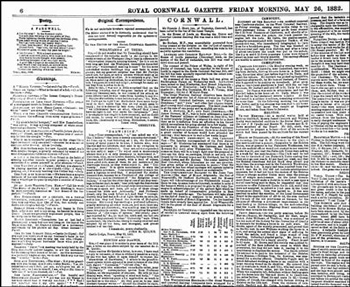Has journalism been compromised in the creation-evolution debate?
How the media has handled discussions about Darwin’s ideas

Credit: ©iStockphoto.com/RichLegg
When the creation-evolution debate gets an airing in the media, the dialogue is sometimes strident and most of the spite comes from the pro-evolution side.
How can I say this with certainty? Until last year, I was a newspaper journalist/sub-editor for more than four decades, and read many letters, emails and website comments on the debate, the majority of which were pro-evolution and most of them peppered with unprintable vitriol aimed at creationists.
By comparison, very few pro-creation commenters resorted to the same sort of unhelpful language.
On three occasions the newspaper for which I worked published opinion pieces I wrote which defended the creation position. But on several other occasions my submissions were rejected and the editor didn’t respond when I asked why.
Was that censorship? Maybe that’s too strong a word, but no editor accepted my insistence that good journalism (which involves presenting all sides of an argument, for one thing) was missing in the creation-evolution debate. In fact none of my colleagues showed any real interest in the debate. One did accept a copy of Dr Jonathan Sarfati’s The Greatest Hoax on Earth? Refuting Dawkins on evolution. However, I have no idea if that colleague read the book, as he returned it to me without comment.
As a journalist I strove to uphold what many see as the best practice of the craft; fair, accurate and balanced reporting. I increasingly see less of that, and not just in this debate; there is more sensationalism and ‘trial by media’, particularly when someone is accused of a serious crime.
What was journalism previously like?

Image © THE BRITISH LIBRARY BOARD. ALL RIGHTS RESERVED.
Recently I decided to look at how British newspapers dealt with the creation-evolution debate during Charles Darwin’s time.
While there is an absence of personal abuse in 19th century newspapers, there is spirited debate and a sadly all-too-common theme of clergy joining the pro-evolution side against the voices of Christian believers speaking up for creation.
There was an early attack on the young earth (i.e. biblical) creationist approach in 1860 in London’s Morning Chronicle which was republished in an Australian publication called Empire.1
The unseemly outburst came in a review of Richard Owen’s book Palaeontology, or a systematic summary of extinct animals and their geological relations:
“For our part we think the records of palaeontology beget ideas of the Creator far more grand and impressive than such as can result from a literal acceptation of the Mosaic history of creation. Fully concede the non-literal acceptation of it, paleontological authors would be absolved from the necessity, real or assumed, of veiling their facts so as to escape the censure of critics more enthusiastic than wise, and literature would be spared the infliction of many a stupid book; for, unfortunately, the advocates for a literal acceptation of the Mosaic account of creation are among the wildest of dreamers. It would be difficult to point out one book written by authors of this class up to the level of mediocrity.”
In reports of debates and in letters to the editor—as is often the case today—those on the pro-evolution side sometimes claimed superiority of intellect and understanding.
An exchange of opinions in the Royal Cornwall Gazette in 18822 featured a medical practitioner named John Mugford Quicke3 and an anonymous individual known as ‘University’.
Dr Quicke ranked Darwin alongside Sir Isaac Newton and described those in the church who questioned Darwin’s theories as being as ill-informed as those who opposed Newton’s.
Dr Quicke looked forward to a time when scientific ‘truth’ prevailed:
“But that the theories of Newton or Darwin, or any other scientific discovery, so wonderfully widening our conceptions of time and of space, should be regarded as antagonistic to true religion is curious indeed; and the devout scientist can now easily enough afford to smile at all such irrational and undevout conclusions. He will fearlessly follow truth wheresoever it may lead him, feeling sure that at last it is the only thing that can remain or will prevail, when all error shall be a thing of the past and, it may be, forgotten.”
In a subsequent issue, ‘University’ challenged Dr Quicke on his ‘truth’ statement:
“But according to science all truth and error are natural products. How does Mr Quicke know that the laws by which error is produced will cease to operate? May not, moreover, both truth and falsehood perish by being evolved into something else? Evolution is a most remarkable phenomenon. It develops beliefs and disbeliefs in its own existence, and by the lapse of time it may bring about its own utter annihilation. To reject such a monstrously absurd theory it is only necessary to understand it.”
‘University’ then put Dr Quicke’s logic to the sword:
“If what our scientific wise-heads tell us is true, all reasons are evolved; but it is plain that they have no reason for believing this, there being none for them to have.”
Dr Quicke was given space for a respectful rebuttal and he also added that he saw no conflict with evolution and the Bible, even quoting the names of several supportive clergy.
Another Darwin dissenter Nicholas Whitley was given considerable space in the same newspaper4 to refute evolution and highlighted the real reason for the conflict in the debate:
“We give honour to whom honour is due, but the laudations in the case of Darwin, mainly from his own followers, have taken so extreme a form, that they appear to be rather directed to support his unproved theory of evolution than to honour his memory as a man.”

There is also a report5 from 1860 of an address by Dr John Charles Hall6 who was highly critical of Darwin’s claims. Dr Hall commended Darwin for the way in which he presented his arguments but “he never rose from the perusal of any scientific work more thoroughly disappointed than he was with this”. He had “asked for facts” but instead found “beliefs and surmises”.
In response to Dr Hall’s presentation, Rev. Samuel Earnshaw 7 said Hall had “not accurately represented Mr Darwin’s ideas, and had, therefore, scarcely left a right impression on his hearers’ minds”.
Rev. Earnshaw, who was also a mathematical physicist, would have much in common with Darwin defenders in the church today.
In 1885 a newspaper8 printed a favourable review of Grant Allen’s book Charles Darwin. The editorial praised the author and Darwin profusely but had one piece of mild criticism which was wide of the mark to say the least.
Allen proposed that evolutionary ideas would eventually be applied to all areas of knowledge, an idea the reviewer rejected:
“This we venture to think the least satisfactory part of his book. He overrates, we think, the influence of Darwinian theory of biological evolution upon philosophical ideas of evolution in general.”
I suggest most parties in the 19th century debates about evolutionary ideas would be astounded to see the impact Darwin has had on today’s society.
But they were not afraid of injecting a bit of wit into proceedings even though it may appear a little lame nowadays:
“Can Mr. Gladstone9 possibly think of creating new Peers? Certainly not. Everybody has now discarded altogether the Chimaera of a Creation. The only method by which a Prime Minister can augment the House of Lords with additional Members, at this time of day, is that of Evolution, accomplished by Natural Selection with a view, of course, respecting Hereditary Legislators, to the Survival of the Fittest.”10
Overall, then, what can be said of newspapers more than a century ago regarding this subject? For one, it appears there was a commitment to giving both sides an airing. Secondly, with some exceptions, there was no rush to disparage a particular viewpoint.
But society now, and the media which arguably accurately reflects it, is a much harsher beast and only gives lip service to publishing anything that challenges evolution.
I stand behind a sentiment I have often repeated: Why is it that journalists, who are taught to question everything, to be the most skeptical skeptics, rarely question evolution?
References and notes
- Professor Owen's new work, The Empire, 15 June 1860, trove.nla.gov.au/newspaper. Return to text.
- British Library Board, Royal Cornwall Gazette, 12 May 1882. Return to text.
- Sometimes spelt Quick in census records. Return to text.
- British Library Board, Royal Cornwall Gazette, 16 June 1882. Return to text.
- British Library Board, Sheffield Independent, 8 September 1860. Return to text.
- livesonline.rcseng.ac.uk/biogs/E002090b.htm. Return to text.
- webspace.yale.edu/chem125/levitron/Earnshaw.html. Return to text.
- British Library Board, Pall Mall Gazette, 4 November 1885. Return to text.
- William Ewart Gladstone (1809–1898) had four separate terms as Prime Minister of Britain. Return to text.
- British Library Board, Grantham Journal, 15 November 1884. Return to text.





Readers’ comments
Comments are automatically closed 14 days after publication.